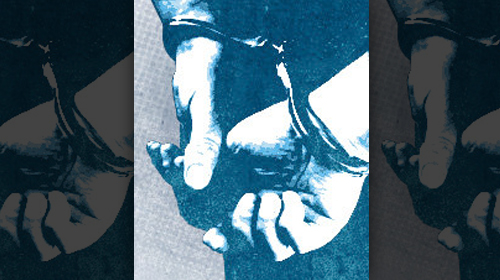
Today, the U.S. has the highest incarceration rate of any country in the world. With over 2.3 million men and women living behind bars, our imprisonment rate is the highest it's ever been in U.S. history. And yet, our criminal justice system has failed on every count: public safety, fairness and cost-effectiveness. Across the country, the criminal justice reform conversation is heating up. Each week, we feature our some of the most exciting and relevant news in overincarceration discourse that we've spotted from the previous week. Check back weekly for our top picks.
Mass incarceration means mass reentry; this year alone, 700,000 people will leave prison and look for work. The ones that find work will be far less likely to commit a new crime and return to prison. On April 25, the U.S. Equal Employment Opportunity Commission made a change that will reduce recidivism by making it easier for released prisoners to obtain employment.
The EEOC revised its guidelines so that employers must also now conduct individualized assessments when screening applicants with criminal records. This new provision will offer qualified jobseekers a chance to explain their involvement with the criminal justice system, in addition to providing them an opportunity to share evidence of rehabilitation. The revised guidelines will help formerly incarcerated persons lead successful lives in the communities to which they return.
The ballot initiative to reform California's notoriously punitive three strikes law can add to its list of unlikely allies District Attorney George Gascon. The reform would lessen sentences for offenders whose third strike wasn't violent or serious. Gascon, the district attorney for San Francisco, says of the initiative, "This by itself is a very conservative, very thoughtful, very tightly crafted reform to three strikes and one that is sensible from a law enforcement point of view and a financial point of view."
Last week, Georgia Gov. Nathan Deal signed a sentencing reform bill that's projected to save $264 million in prison spending over the next five years. The legislation, which takes effect July 1, establishes alternatives to incarceration for low-level, nonviolent drug and property offenders and reserves expensive prison beds for the most dangerous offenders.
Not many states incarcerate more of their citizens than Missouri. Last week, the Missouri legislature took a step toward changing that when it voted overwhelmingly to pass a bill that will address probation violations more intelligently. In response to a study that found that 71 percent of Missouri prison admissions resulted from probation or parole violations, the bill establishes community supervision for probationers or parolees who violate a rule of supervision. Similar programs in other states have reduced prison admissions, drug use and recidivism.
This week, Oklahoma Gov. Mary Fallin signed a criminal justice reform bill that waters down its positive provisions with negative ones, including provisions that allow prosecutors to veto judicial sentence modifications and creates an alternative system of incarceration for certain nonviolent offenders. The └¤░─├┼┐¬¢▒¢ß╣¹'s Vanita Gupta and Inimai Chettiar talk about how the bill comes up short here, and the └¤░─├┼┐¬¢▒¢ß╣¹ of Oklahoma's Executive Director Ryan Kiesel offers his criticisms of the bill .
Learn more about overincarceration: Sign up for breaking news alerts, , and .
